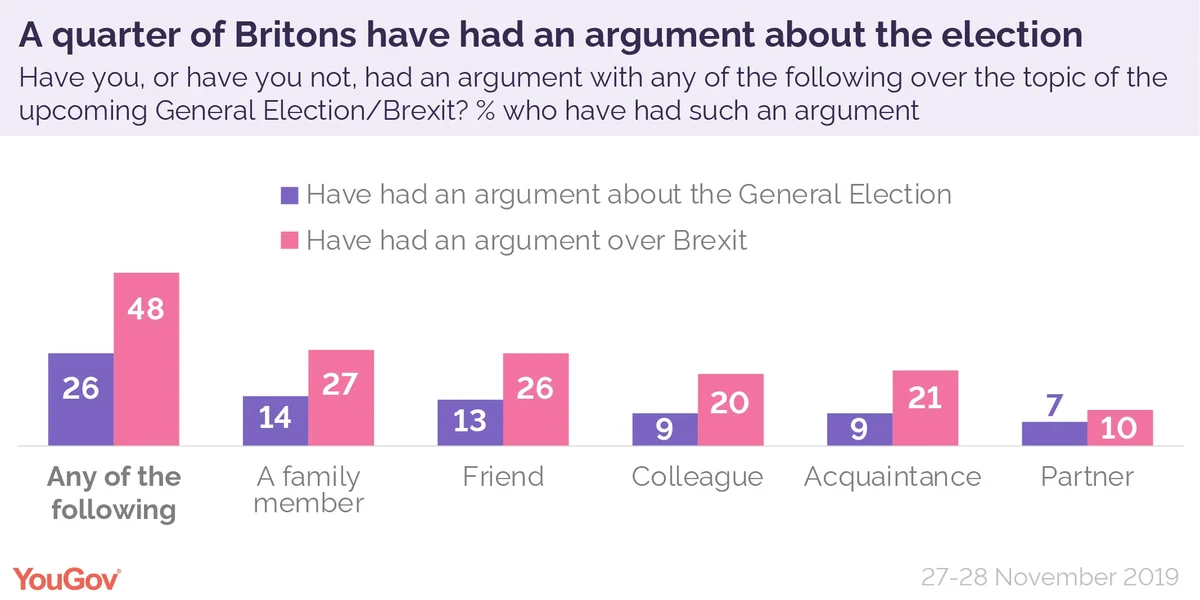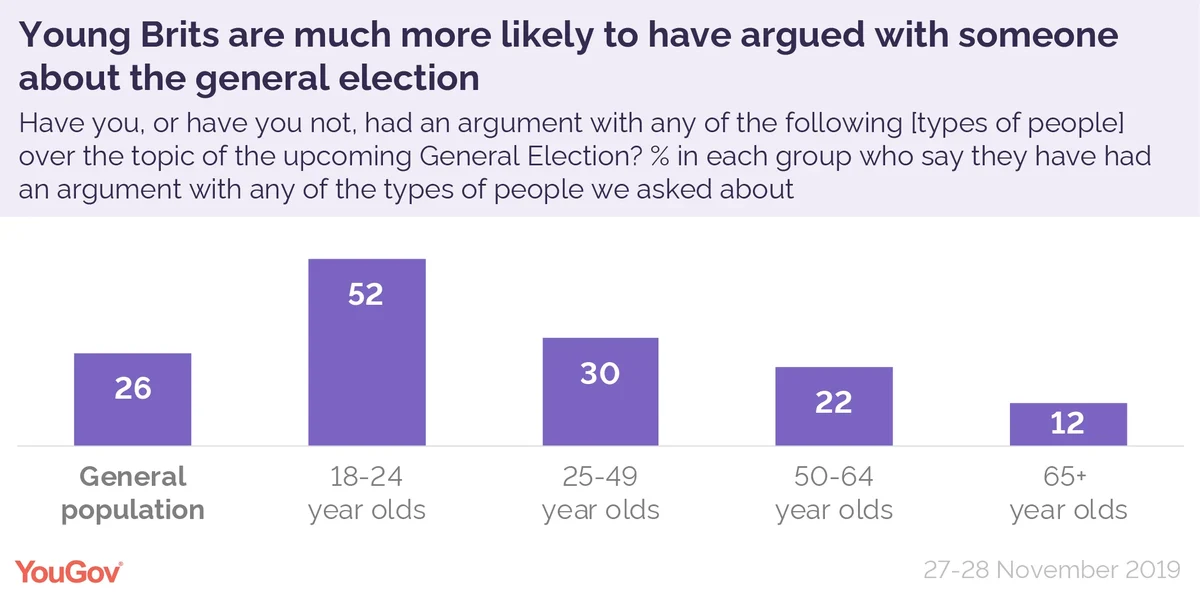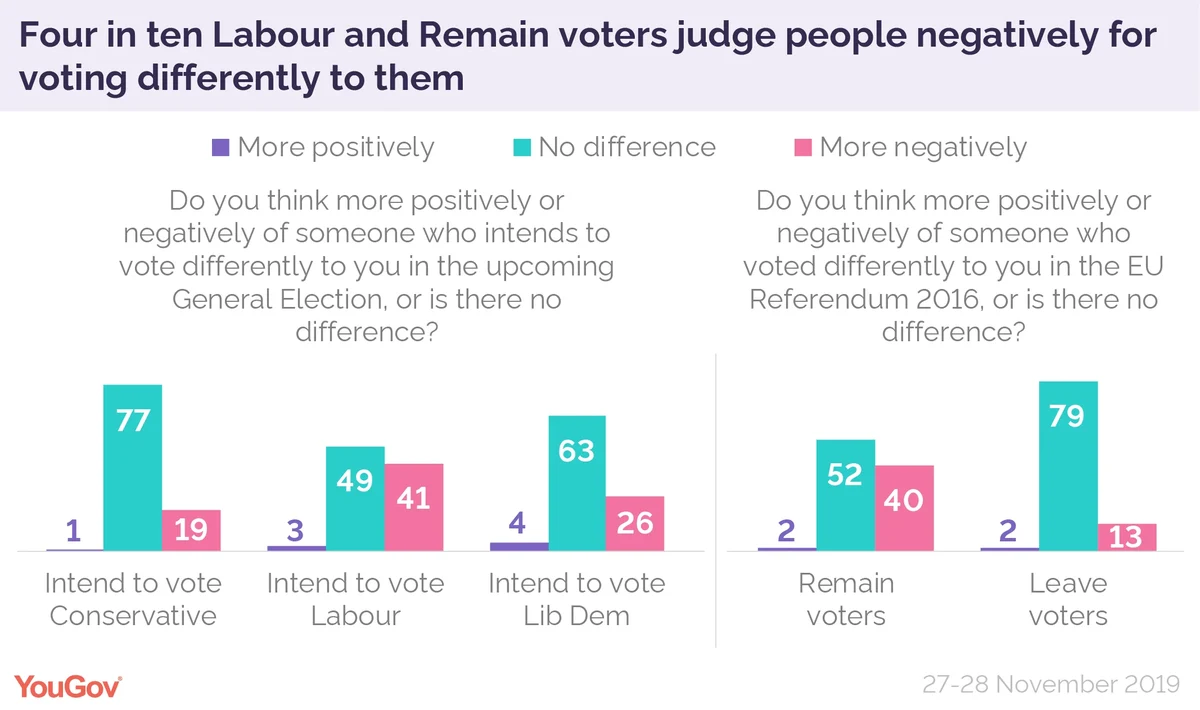Party politics is a contentious topic, especially during a general election – but Brexit is still sparking even more arguments (and Remainers are the most vocal)
A general election is guaranteed to stir up debate and cause the odd argument. But new YouGov research shows that Brexit is even more contentious: just 26% of Britons have had a row with someone about the upcoming general election, but twice as many (48%) have argued with someone about Brexit.

How people voted in the 2016 EU referendum has a big impact on their likelihood to have argued about it. A majority (58%) of Remain voters report arguing with someone about the UK’s withdrawal from the EU, compared to 42% of those who voted Leave.
Age is also a defining factor, with younger respondents more likely to have had a clash about Brexit than older respondents. Indeed, whilst almost two thirds (64%) of 18 to 24 year olds admitted that they had argued, just over half (35%) of those 65 or older said the same.
And when it comes to gender, men are more likely than women to have argued about Brexit than women (54% and 43% respectively).
Over a quarter of respondents have argued with a family member (27%) or friend (28%) and it seems that Brexit has also sparked debate in the workplace, with one in five arguing with a colleague.
And, as Britain remains divided on the issue, Brexit is even causing tension between strangers, with 16% of Brits reporting that they have argued with someone they don’t know about Brexit.
General election
Turning now to the topic of the general election, a majority (52%) of 18 to 24 year olds have reported having an argument with someone, compared to just 12% of those 65 and older. And, with 28% of 18 to 24 year olds having argued with a family member, and 30% having a dispute with a friend, younger respondents are also significantly more likely to have argued with those closest to them than the general population is.

Partisan alignment also has an impact. Almost half (45%) of those who intend to vote Labour have argued with someone about the December election, which makes them more likely than those who intend to vote for the Conservatives (22%), or for the Liberal Democrats (29%), to have experienced an election fuelled argument.
Do we let political views impact our opinions of one another?
A fifth (22%) of Brits said they would view someone who intends to vote differently to them more negatively. Conservative voters are less likely to view other voters negatively (19%), whilst Labour voters are most likely to (41%). Still, two thirds (66%) of Brits state that how people intend to vote in the upcoming election will have no difference on their opinion towards them.
A quarter of the public (25%) stated that they view those who voted differently to them in the EU referendum more negatively because of it. This figure rises to 40% for Remain voters, and drops significantly to 13% of Leave voters.

Photo: Getty








